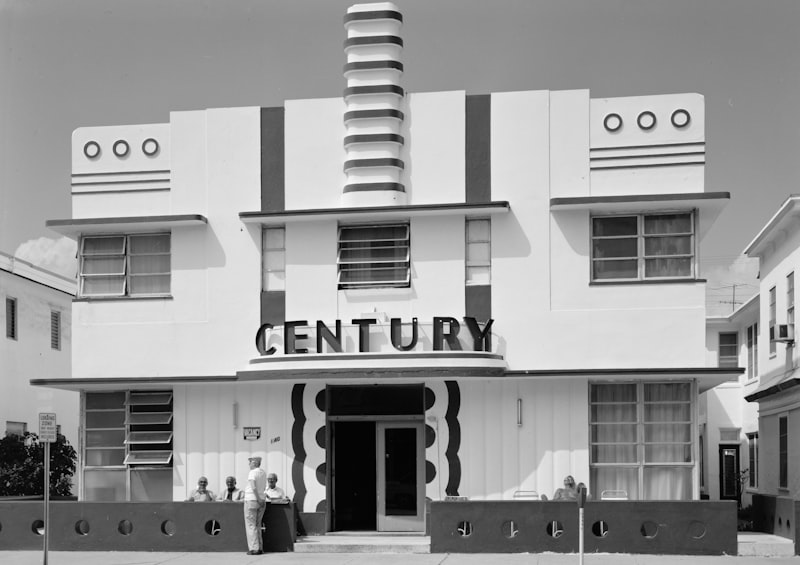Imagine stepping into a world where time travel is possible, where artificial intelligence questions its own existence, or where humanity faces existential crises amidst technological advancements. These are the themes that have made 20th-century science fiction literature so compelling and enduring.
One of the undisputed giants of the genre is Isaac Asimov, whose Foundation series laid the groundwork for epic space operas. Asimov’s ability to blend grand ideas with intricate plots and complex characters is unparalleled. The Foundation series explores the rise and fall of civilizations on a galactic scale, posing profound questions about the future of humanity.
Another titan is Arthur C. Clarke, renowned for his novel “2001: A Space Odyssey.” Clarke’s vision of humanity’s encounter with an ancient alien intelligence and the birth of artificial intelligence remains a cornerstone of science fiction, inspiring both awe and introspection.
For those who prefer dystopian visions of the future, Aldous Huxley’s “Brave New World” offers a chilling portrayal of a society controlled by technology and genetic engineering, where individuality is sacrificed for societal stability.
Philip K. Dick, known for mind-bending narratives, gave us “Do Androids Dream of Electric Sheep?” which inspired the iconic film “Blade Runner.” His exploration of what it means to be human in an increasingly mechanized world resonates deeply in today’s era of rapid technological advancement.
Ursula K. Le Guin challenged conventions with her novel “The Left Hand of Darkness,” which explores themes of gender and identity on a distant planet. Le Guin’s ability to blend social commentary with intricate world-building makes her a cornerstone of progressive sci-fi literature.
Timeless Treasures: Unveiling the Top 10 Sci-Fi Books of the 20th Century
Science fiction has long captivated readers with its imaginative worlds, futuristic technologies, and thought-provoking themes. As we delve into the realm of 20th-century literature, certain books stand out not just for their popularity but for their lasting impact on the genre. Here, we uncover the top 10 sci-fi books that have defined an era and continue to enthrall readers worldwide.
Frank Herbert’s “Dune” remains a cornerstone of science fiction, blending political intrigue with ecological themes on the desert planet of Arrakis. Its rich world-building and complex characters have cemented its place in literary history.
Orwell’s dystopian masterpiece, “1984,” paints a chilling picture of a totalitarian society where individuality is suppressed and surveillance is omnipresent. Its warnings about authoritarianism and propaganda remain eerily relevant today.
Often credited with pioneering the cyberpunk genre, William Gibson’s “Neuromancer” takes readers on a high-tech journey through a virtual world filled with hackers, AI, and corporate espionage.
Isaac Asimov’s “Foundation” series explores the rise and fall of civilizations in a galaxy-spanning empire. Its exploration of psychohistory—a blend of mathematics and sociology—offers a unique lens on the future of humanity.
Aldous Huxley’s “Brave New World” presents a utopian society where technology and social control have eliminated suffering and conflict—at a cost. Its critique of consumerism and genetic engineering remains poignant.
In Ray Bradbury’s “Fahrenheit 451,” books are outlawed, and firemen burn any that are found. This cautionary tale about censorship and intellectual freedom is as relevant today as when it was first published.
Ursula K. Le Guin’s exploration of gender and identity in “The Left Hand of Darkness” takes place on a planet where inhabitants can change genders. It challenges norms and opens discussions about societal constructs.
Douglas Adams’ comedic science fiction series begins with “The Hitchhiker’s Guide to the Galaxy,” a whimsical journey through space filled with absurdity, wit, and profound philosophical questions hidden behind the humor.
Neal Stephenson’s “Snow Crash” is a fast-paced cyberpunk novel that explores virtual reality, linguistic theory, and corporate control. It remains a favorite among tech enthusiasts for its prescient insights.
Robert A. Heinlein’s “Stranger in a Strange Land” follows a human raised by Martians who returns to Earth with extraordinary abilities. It challenges societal norms and explores themes of religion, sex, and humanity.
These timeless sci-fi treasures continue to shape the genre, inspiring new generations of readers and writers alike. Dive into these visionary worlds where imagination knows no bounds and explore the limitless possibilities of the human mind.
Journey Through Alternate Realities: Essential Sci-Fi Reads from the Last Century
Imagine stepping into worlds where time travel reshapes history, artificial intelligence evolves beyond human comprehension, and extraterrestrial civilizations redefine what it means to be sentient. Authors like Isaac Asimov, known for his seminal work “Foundation,” envisioned sprawling empires guided by psychohistory, blending social science with visionary fiction. In Philip K. Dick’s “Do Androids Dream of Electric Sheep?”, readers ponder what defines humanity amidst the dystopian landscape of androids and empathy tests.
Ursula K. Le Guin crafted intricate worlds in “The Left Hand of Darkness,” where gender and identity are fluid on a planet touched by interstellar diplomacy. Her exploration of cultural diversity and the human condition resonates deeply, challenging readers to rethink societal norms through a speculative lens.
In Arthur C. Clarke’s “2001: A Space Odyssey,” the monolith becomes a symbol of evolution’s mysteries, leading humanity from primitive Earth to the far reaches of outer space. Clarke’s seamless blend of scientific rigor and philosophical inquiry continues to inspire awe and introspection.
These timeless classics, alongside newer voices like N.K. Jemisin’s “The Fifth Season” trilogy, which reimagines Earth beset by cataclysmic forces and extraordinary beings, showcase the genre’s evolution. Each author adds a unique brushstroke to the canvas of speculative fiction, inviting readers to contemplate the infinite possibilities of existence.
Explore these essential sci-fi reads to discover worlds where reality bends, technology transforms, and humanity confronts its deepest fears and aspirations. Journey through alternate realities, where the boundaries of what is possible blur, and the imagination takes flight.
From Dystopia to Utopia: Must-Read Sci-Fi Classics from the 1900s

Imagine diving into a world where reality bends and futuristic landscapes unfold before your eyes. Science fiction, with its ability to transport us across time and space, has captivated readers for decades. In the realm of 20th-century literature, certain classics stand out not just for their imaginative plots, but for their profound explorations of human society and its potential futures.

One of the seminal works in this genre is George Orwell’s “1984”. Written in 1949, Orwell paints a chilling picture of a totalitarian regime where Big Brother watches every move, and individual freedom is a distant memory. This dystopian masterpiece continues to resonate today, serving as a stark warning against the dangers of authoritarianism.
In contrast, Aldous Huxley’s “Brave New World” offers a different perspective on a future society. Published in 1932, Huxley presents a world where technology and genetic engineering have created a seemingly perfect utopia. Yet beneath the surface lies a disturbing reality of conformity and emotional emptiness, challenging readers to reflect on the price of societal harmony.
Moving forward, Isaac Asimov’s “Foundation” series, beginning with the eponymous novel in 1951, explores the rise and fall of civilizations on a galactic scale. Asimov’s intricate blend of science, politics, and philosophy unfolds across millennia, illustrating the complexities of human progress and the enduring quest for knowledge and power.
For those drawn to the existential questions of artificial intelligence and humanity’s place in the universe, Philip K. Dick’s “Do Androids Dream of Electric Sheep?” (1968) remains essential reading. This novel, famously adapted into the film “Blade Runner”, delves into themes of identity, empathy, and what it means to be human in a world where distinctions between man and machine blur.
The sci-fi classics of the 1900s continue to fascinate and provoke thought, offering readers glimpses into possible futures shaped by technology, ideology, and the human spirit. Whether exploring dystopian nightmares or utopian ideals, these works remind us of the power of speculative fiction to inspire, challenge, and illuminate the world we live in.
Exploring the Future Past: Iconic Sci-Fi Novels that Shaped the 20th Century
Imagine diving into a world where technology merges seamlessly with imagination, where futuristic landscapes and visionary ideas captivate readers across generations. The 20th century birthed a genre that transcended mere storytelling, shaping the very way we envision the future. Science fiction novels of this era not only entertained but also sparked debates on humanity’s destiny and the potential of scientific progress.
Among the trailblazers stands Isaac Asimov’s “Foundation” series, a saga that foresees the rise and fall of civilizations through the lens of psychohistory—a fictional science blending mathematics and sociology. Asimov’s intricate narrative explores themes of governance, societal evolution, and the relentless march of time, earning its place as a cornerstone of speculative fiction.
Equally transformative was Arthur C. Clarke’s “2001: A Space Odyssey,” a collaboration with Stanley Kubrick that expanded on Clarke’s short story “The Sentinel.” This novel delves deep into human evolution, artificial intelligence, and encounters with extraterrestrial life, challenging readers to ponder the mysteries of the cosmos and the potential of human consciousness.
H.G. Wells’ “The War of the Worlds” remains a quintessential tale of alien invasion, depicting humanity’s vulnerability against technologically superior beings. Published in 1898 but resonating through the 20th century, it tapped into fears of scientific advancements outpacing ethical considerations—a theme still relevant today.
Philip K. Dick’s “Do Androids Dream of Electric Sheep?” questioned the nature of humanity in a world where androids are indistinguishable from humans. This exploration of identity, empathy, and artificial intelligence laid the groundwork for discussions on ethics in technology, influencing later works like Ridley Scott’s film adaptation, “Blade Runner.”
These novels not only entertained but also served as cautionary tales, urging readers to contemplate the consequences of scientific and technological progress. They continue to inspire new generations of writers, scientists, and dreamers, reminding us that the future is shaped not only by facts and figures but also by our collective imagination and moral compass.
Galactic Adventures and Technological Marvels: Legendary Sci-Fi Books of the 1900s
In the vast expanse of literature, certain books stand as titans, shaping our perceptions of the future and pushing the boundaries of what is possible. Consider “Foundation” by Isaac Asimov, a masterful saga that unfolds over centuries, predicting the rise and fall of empires in a universe governed by psychohistory, a blend of mathematics and sociology.


Or delve into the mind-bending realms of Philip K. Dick’s “Do Androids Dream of Electric Sheep?” which inspired the cult classic film “Blade Runner.” It explores the blurred lines between humans and androids, raising profound questions about identity and empathy in an increasingly mechanized world.
For those craving epic space opera, Frank Herbert’s “Dune” offers a rich tapestry of politics, religion, and ecology on the desert planet of Arrakis. Its influence extends far beyond literature, shaping modern concepts of environmentalism and power dynamics.
Venture into the cybernetic landscapes of William Gibson’s “Neuromancer,” where hackers navigate a virtual reality matrix, and artificial intelligences wield immense influence. Gibson’s prophetic vision of the internet and virtual reality remains eerily relevant in our digital age.
In Arthur C. Clarke’s “2001: A Space Odyssey,” journey from the dawn of humanity to encounters with enigmatic extraterrestrial beings, guided by the mysterious monoliths. This groundbreaking novel, adapted into a cinematic masterpiece by Stanley Kubrick, explores evolution, consciousness, and the potential of artificial intelligence.
Each of these works not only captivates with gripping narratives but also challenges readers to contemplate the impact of technology on society, the mysteries of the universe, and the very essence of humanity itself. As we look back on these timeless classics, we are reminded of their enduring relevance and the boundless possibilities that await us in the realms of science fiction.
Beyond Space and Time: The Definitive List of Sci-Fi Masterpieces from 1900-1999
Journey back to the early 20th century, where H.G. Wells penned “The War of the Worlds,” a gripping tale of Martian invasion that ignited the genre’s fascination with extraterrestrial life and interplanetary conflict. This pioneering work laid the foundation for many to come, showcasing Wells’ visionary storytelling and profound commentary on human nature.
As the decades progressed, Isaac Asimov emerged as a luminary with his “Foundation” series, a saga of epic proportions spanning millennia and civilizations. Through Asimov’s meticulous world-building and exploration of psychohistory, readers were treated to a tapestry of future histories intertwined with themes of power, governance, and the destiny of humankind.
In the midst of the mid-20th century, Arthur C. Clarke unveiled “2001: A Space Odyssey,” co-created with Stanley Kubrick, a groundbreaking novel that delved into the evolution of humanity alongside the enigmatic monoliths and the sentient computer HAL 9000. Clarke’s seamless blend of scientific rigor and philosophical contemplation redefined the genre, leaving an indelible mark on both literature and cinema.
Philip K. Dick challenged perceptions of reality with “Do Androids Dream of Electric Sheep?” later adapted into the iconic film “Blade Runner.” His exploration of artificial intelligence, identity, and the essence of humanity remains as poignant today as it was in the turbulent years of the late 20th century.
Finally, Ursula K. Le Guin reshaped the genre with “The Left Hand of Darkness,” a groundbreaking exploration of gender and identity set against the backdrop of a planet where inhabitants are ambisexual. Le Guin’s anthropological insight and lyrical prose continue to inspire readers, reflecting her deep understanding of societal structures and human relationships.
Frequently Asked Questions
What themes and ideas are common in the best sci-fi books of the 20th century?
Explore common themes and ideas found in the best science fiction books of the 20th century. Discover futuristic worlds, advanced technology, exploration of the human condition, societal critique, and philosophical speculation.
Which classic sci-fi authors defined the genre in the 1900s?
Discover influential classic sci-fi authors who shaped the genre in the 1900s.
Can you recommend lesser-known but influential sci-fi novels from the 20th century?
Discover influential yet lesser-known sci-fi novels from the 20th century with our curated list. Explore hidden gems that have shaped the genre’s evolution.
What are the top 5 must-read sci-fi books from the 20th century?
Explore our curated list of the top 5 must-read science fiction books from the 20th century. Discover timeless classics that have shaped the genre, offering thrilling adventures, visionary ideas, and thought-provoking concepts. Perfect for both avid sci-fi enthusiasts and newcomers looking to delve into the rich literary world of speculative fiction.
How do I choose the best sci-fi book from the 20th century?
Learn how to choose the best science fiction book from the 20th century with our concise guide. Discover key factors such as author reputation, critical acclaim, thematic relevance, and reader reviews. Make an informed choice based on these criteria to find a sci-fi classic that resonates with you.



